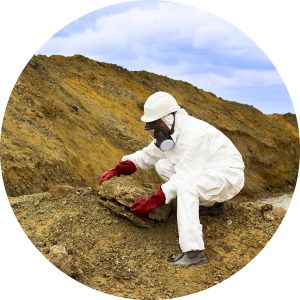We provide a full spectrum of design and construction-related services. We can help guide you through the complex process of taking your project from bare soil to completion.

We offer geotechnical services ranging from consultation to address a specific issue to full design-level geotechnical engineering investigations.






Earth Systems laboratories provides hundreds of different types of tests to determine the characteristics and physical properties of materials commonly used in construction, including the following:
Earth Systems laboratories have been accredited, accepted, validated or approved as appropriate for various test methods by the California Department of Transportation (Caltrans), the Division of the State Architect (DSA), the U.S. Army Corps of Engineers, and the City of Los Angeles Department of Building and Safety, and the Department of Health Care Access and Information (HCAI); please refer to each agency or organization’s website for information pertaining to Earth Systems’ individual laboratory qualifications. Several of our laboratories are assessed by the AASHTO Accreditation Program (AAP), and they participate in proficiency sample programs through AASHTO re:source and the Cement and Concrete Reference Laboratory (CCRL). These laboratories are evaluated by the AASHTO Accreditation Program (AAP) for compliance with AAP procedures. Please refer to the AASHTO re:source website https://aashtoresource.org for the compliance status of our laboratories in your area. Laboratory equipment is calibrated annually, and the calibrations are traceable to the National Institute of Standards and Technology (NIST). Our laboratories are under the supervision of licensed professional engineers and laboratory testing is performed by qualified and trained technicians in accordance with ASTM, Caltrans, AASHTO, and other appropriate laboratory methods.


Geologic Hazard studies are often required in areas where geologic hazards are known or suspected to exist. The studies are conducted to confirm that construction of a project will not result in unsafe conditions and may require development of specific measures to mitigate potential impacts. Geologic hazards that are commonly addressed include landslide risk, slope instability, liquefaction and lateral spreading, fault rupture and seismic shaking, and erosion.
In coastal environments, rises in sea level and natural erosional processes combine to erode coastal bluffs, sometimes endangering existing structures or impacting the locations of proposed developments. Our team of qualified geologists can help property owners by reviewing bluff geology and structure, assessing rates of bluff retreat, and providing recommendations to help protect coastal properties.


California is crisscrossed by hundreds of active and inactive faults. Investigations may be required to evaluate the potential for surface faulting to create a hazard to life, safety, or property. Fault investigations are conducted by licensed professional geologists and typically involve research of geologic literature, maps, photographs and other sources, evaluation of subsurface strata via trenching or other means, geophysical surveys, and age-dating of geologic units.
The Earth Systems environmental team specializes in the detection, assessment, and remediation of soil and groundwater contamination issues, helping you to navigate the regulatory process from initial assessment to regulatory closure.

